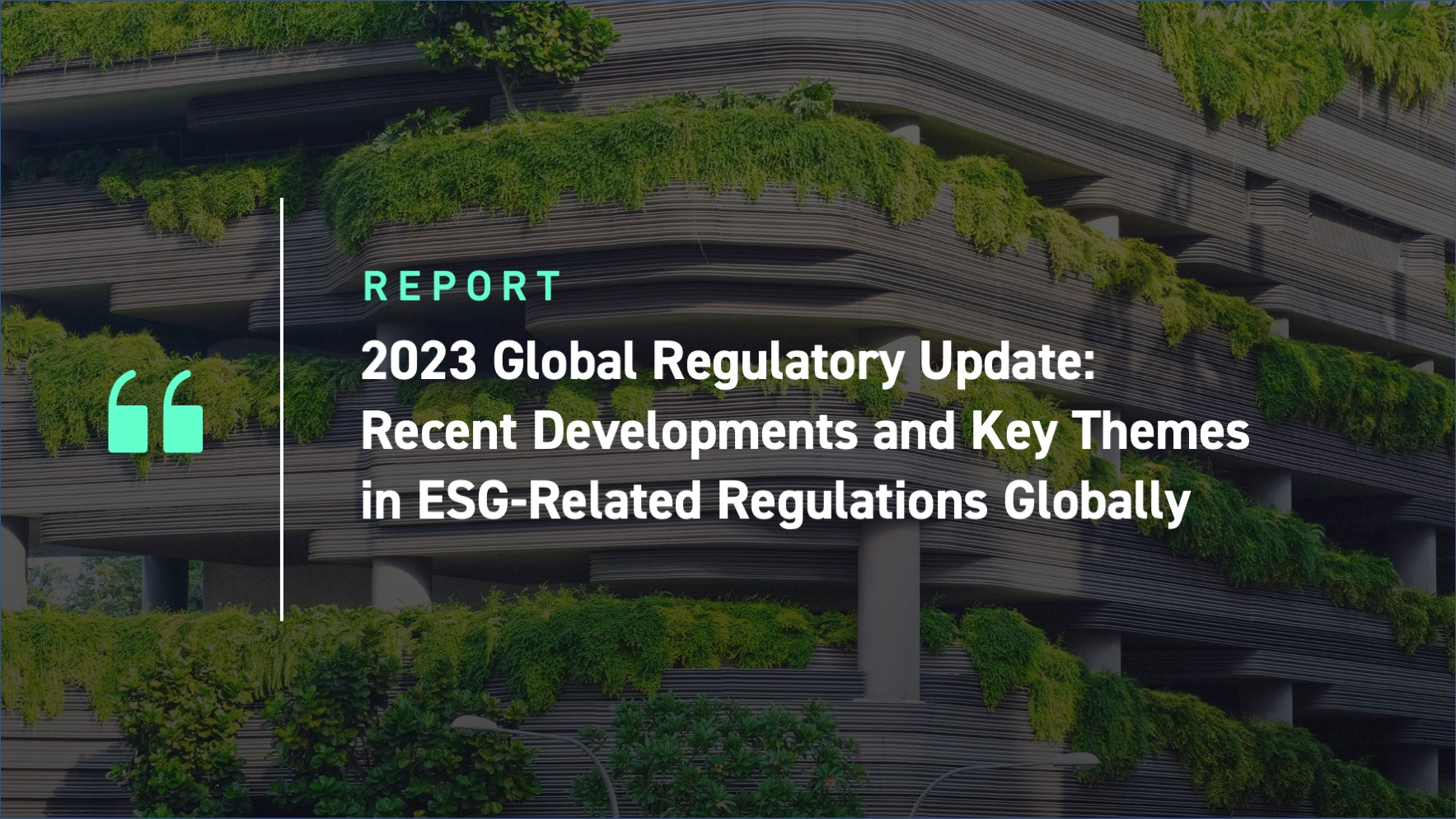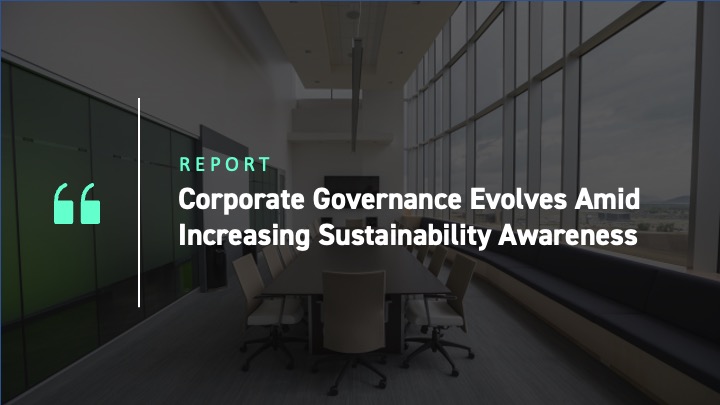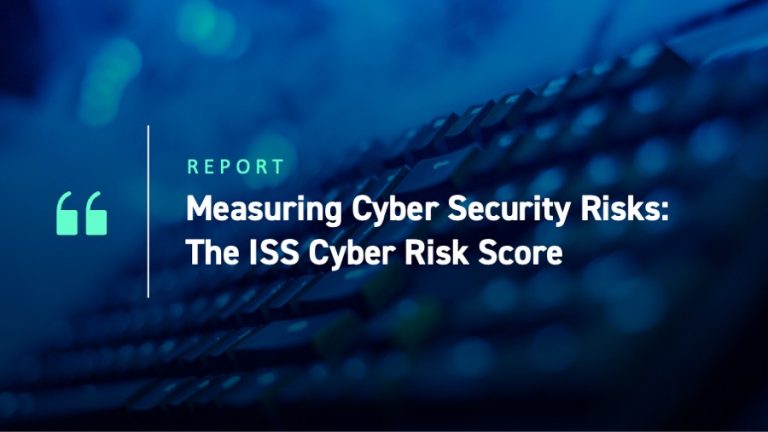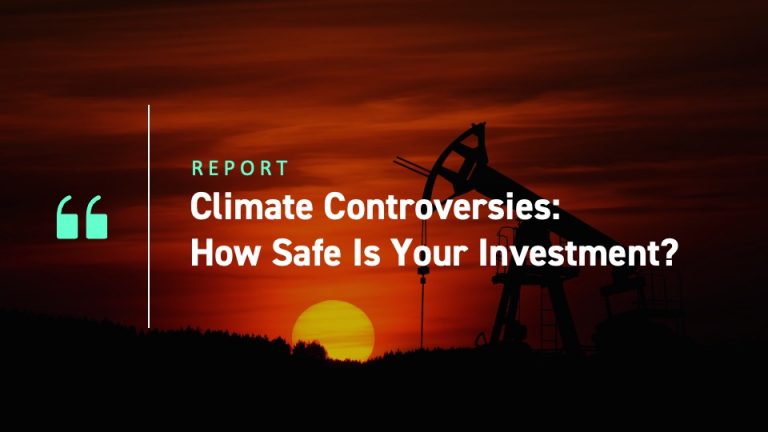Below are key takeaways from ISS ESG’s recently released report on the state of ESG-related regulation in the world. To access the full report, you can download it directly from the ISS ESG online library.
- Two major sustainability reporting standards were finalized in 2023: the latest update to the European Commission’s European Sustainability Reporting Standards and the Sustainability Disclosure Standards of the International Sustainability Standards Board. Although the two standards are interoperable to an extent, differences in areas such as the definition of materiality or the application of material assessment could considerably reduce their comparability across companies.
- Regulators are seeking, through investment product disclosures, naming rules, and classifications, to elicit more meaningful disclosure and support retail investors in navigating the growing market of sustainable investment products. However, naming, labelling, and reporting regimes still leave room for interpretation on which investment products qualify as sustainable. A survey of regulations in the European Union, the United Kingdom, the United States, Canada, Australia, Hong Kong, Singapore, and Japan indicates that navigating the emerging regimes will remain a challenge for the foreseeable future.
- Regulation to promote corporate due diligence on human rights and environmental impacts has become more ambitious in its goals, scope, and enforcement. In some markets, policymakers are pursuing such regulation as a way to supplement existing disclosure-based regimes. The EU Corporate Sustainability Due Diligence Directive, currently in negotiations, applies to companies based within and outside the EU, for example. The U.S. Securities and Exchange Commission is monitoring discrepancies between companies’ public sustainability disclosures and those in their SEC filings, while the U.S. Congress is contemplating corporate due diligence obligations related to supply chains and human rights.
- The U.K. is pursuing a different regulation path from the EU, which may involve less expansive sustainability-related corporate reporting. A U.K. taxonomy framework currently under development may similarly be more flexible for companies reporting against it than the EU taxonomy. Meanwhile, the U.K. is one of the first major capital markets to base its sustainability disclosure standards on those of the International Sustainability Standards Board.
- The sustainable bond market reportedly has exceeded $4 trillion in issuances since the late 2000s and continues to be one of the main instruments to mobilize funds for environmental and social objectives. The International Capital Market Association principles for labelled debt instruments have influenced bond market regulation in China, India, and Japan, while the EU is following a more challenging approach. Current regulation tends to focus on green bonds.
Explore ISS ESG solutions mentioned in this report:
- Financial market participants across the world face increasing transparency and disclosure requirements regarding their investments and investment decision-making processes. Let the deep and long-standing expertise of the ISS ESG Regulatory Solutions team help you navigate the complexities of global ESG regulations.
- Identify ESG risks and seize investment opportunities with the ISS ESG Corporate Rating.
- Assess companies’ adherence to international norms on human rights, labor standards, environmental protection and anti-corruption using ISS ESG Norm-Based Research.
By: Candice Coppere, Climate Analytics Head, ISS ESG
Navaneet Desai, ESG Regulatory Solutions – Product Manager, ISS ESG
Hugo Gallagher, Senior Associate, Regulatory Affairs, ISS
Karina Karakulova, Vice President, Director of Regulatory Affairs and Public Policy, ISS
Mathilde Krief, Team Lead of ESG Regulatory Solutions – Product Manager, ISS ESG
Devansh Kumar, ESG Specialist, Client Success, ISS ESG
Héctor Páez, ESG Methodology Lead – Fixed Income, ISS ESG
Sam Schrager, U.S. Climate Analytics Lead, ISS ESG
Ronja Wöstheinrich, ESG Methodology Lead – Regulatory Solutions & Fixed Income, ISS ESG
Mohammad Zeeshan, Analyst, Climate Research, ISS ESG




